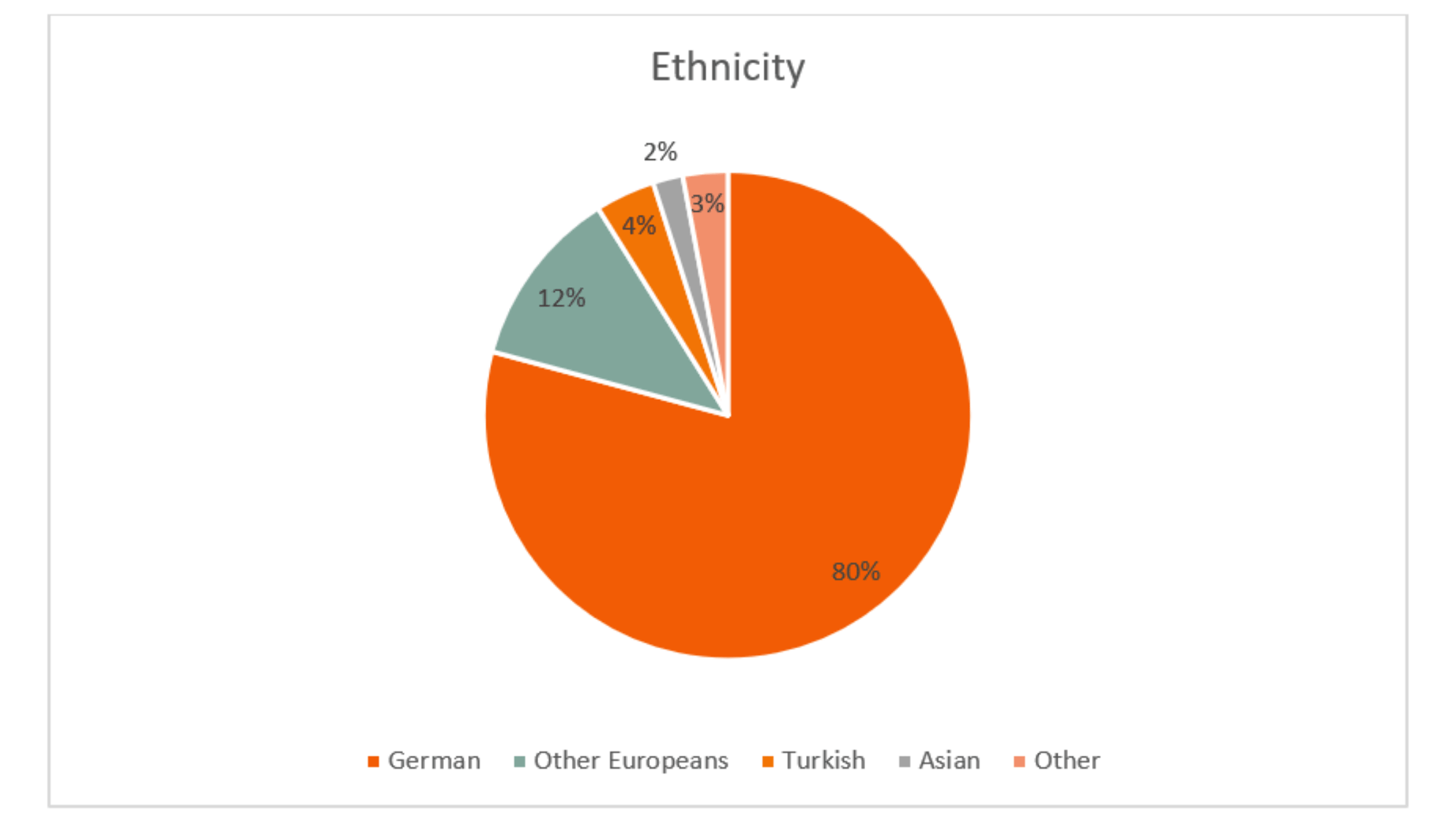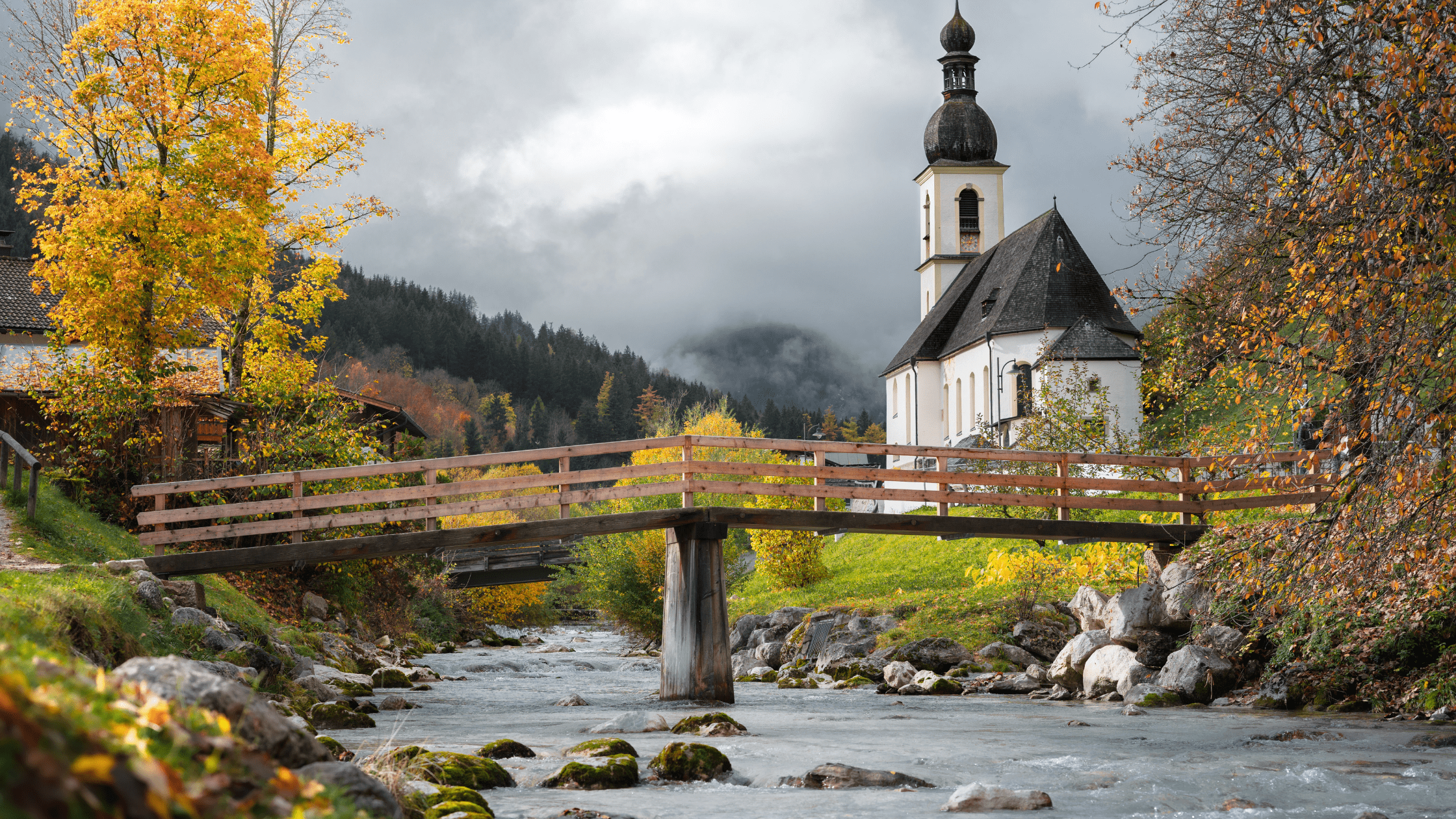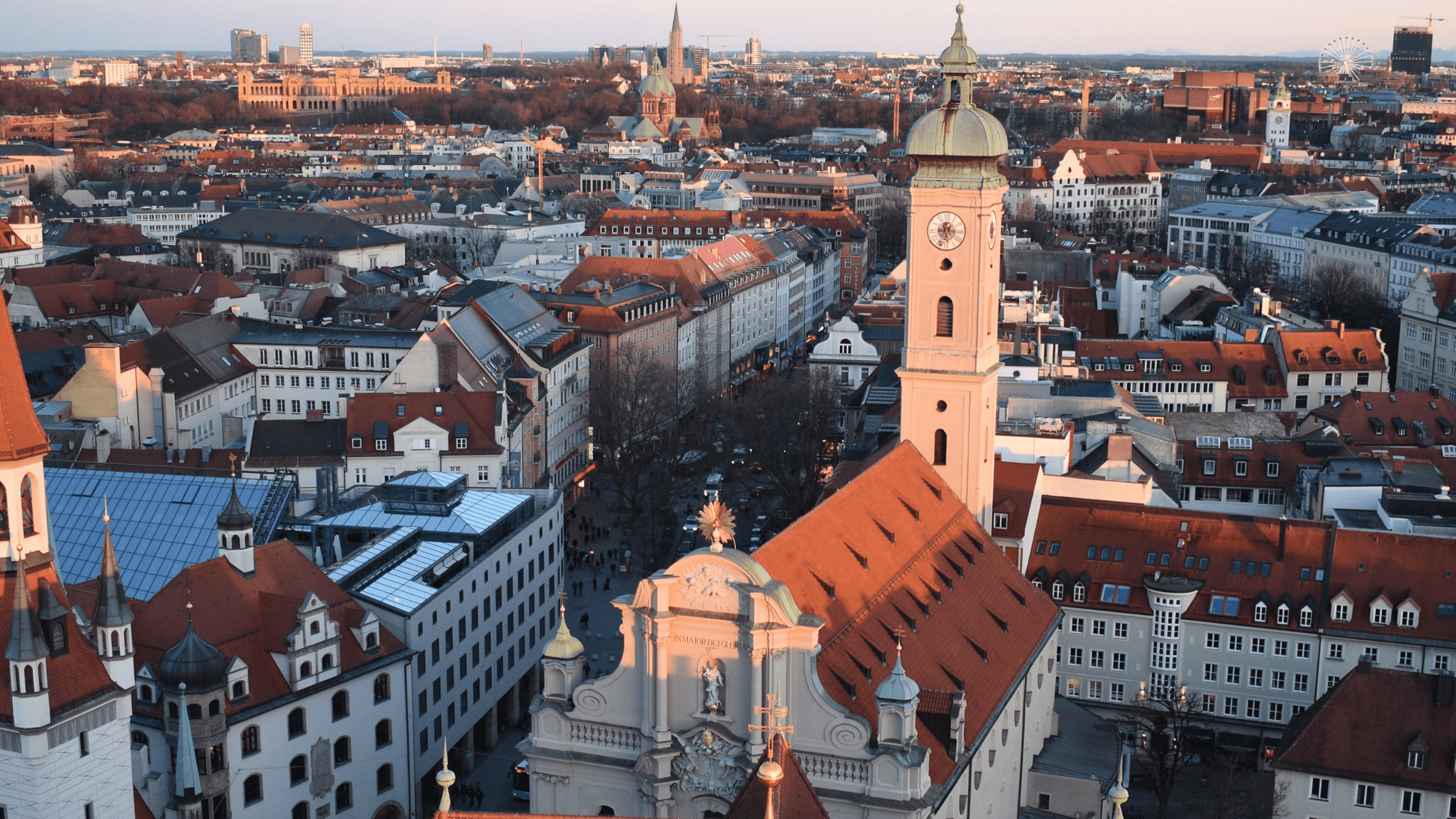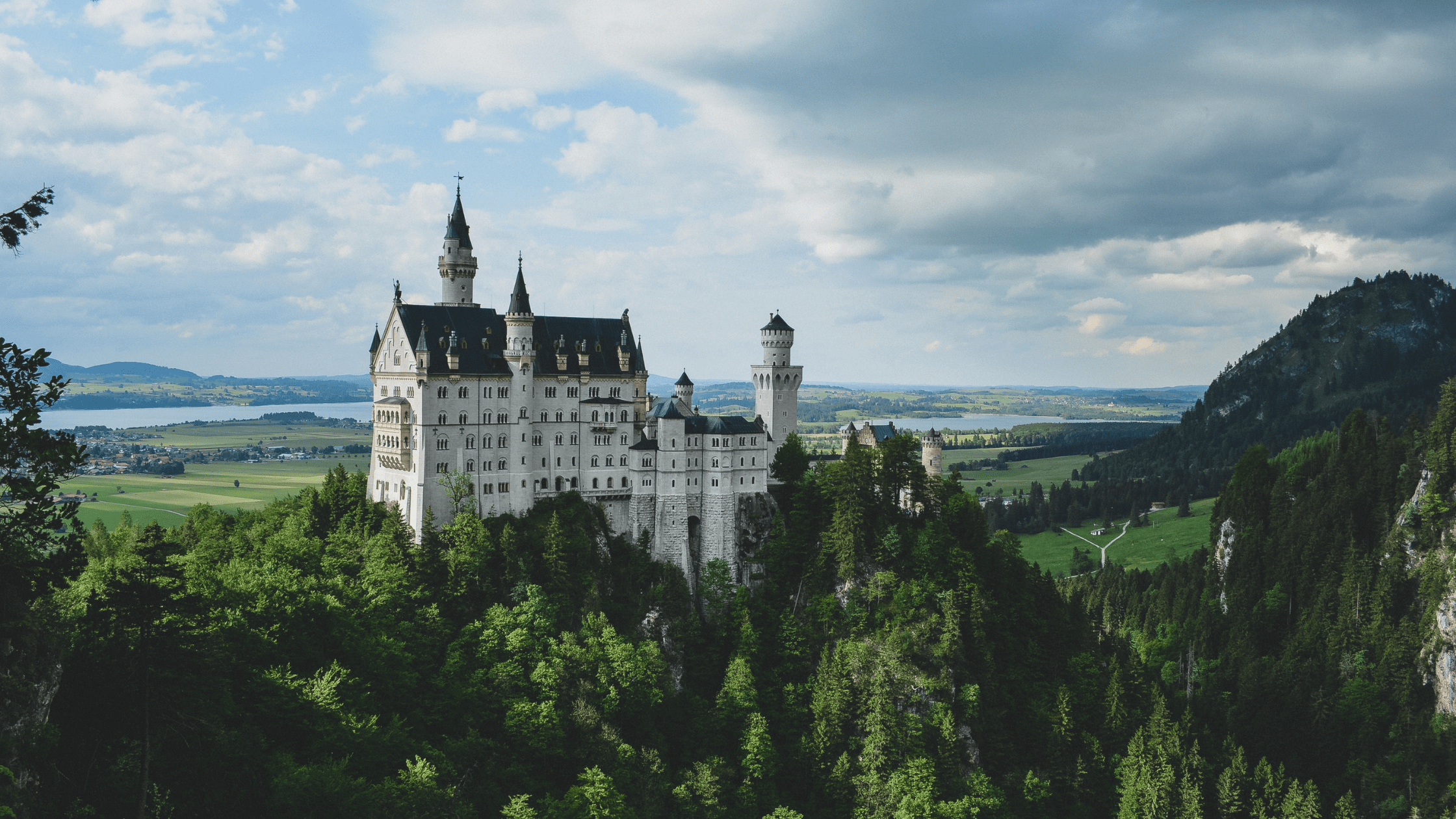General Information
| POPULATION | 83.02 million |
| LANGUAGE | German |
| CAPITAL | Berlin |
| CURRENCY | Euro |
Fun Facts
- University is free for everyone (even non-Germans)
- 65% of the highways in Germany (Autobahn) have no speed limit
- There are over 1,500 different beers in Germany
- Berlin has the largest train station in Europe
- Germany is one of the most densely populated countries in the world
Germany
Lying at the heart of Europe, Germany is one of the worlds wealthiest nations. In its present form, Germany is one of the newest countries in Europe. After World War 2, it was divided into two separate countries- West Germany, a western-style democracy, and East Germany, a communist state. In 1990, the two parts of Germany were reunited as one country. The Eastern part is now struggling to overcome the legacy of economic decay and pollution left by the communist party. Germany shares borders with the Netherlands, Belgium, and Luxembourg, as well as France to the south-west, Germany’s entire southern border is shared with Switzerland and Austria, Czechia and Poland lie to the East of Germany.
Ethnicity
There are 83.02 million people living in Germany.
- 80% German
- 12% European Other
- 4% Turkish/Kurds
- 2% Asian
- 3% Other

Economy
Germany is one of the most industrialised and populous country in Europe. Germany has a mixed economic structure that combines various levels of private independence with centralised economic planning and government control. It is well-known for its technological accomplishments, but it has also produced some of Europe’s most popular composers, philosophers, and poets. Germany has recovered to become the continent’s economic powerhouse and a driving force behind European cooperation. Low fertility rates and a significant rise in net immigration are putting strain on the country’s social welfare system, necessitating structural reforms. 30% of the population are roman catholic, 27% protestant, 5% Islam, 2% Orthodox Christians and the remaining is unspecified. Germany’s economy is a highly developed social market economy. It has the largest national economy in Europe, the world’s fourth-largest by nominal GDP, and the fifth-largest by GDP (PPP)
Food
The majority of German main dishes include either pork, beef, veal, or fish. Potatoes are common among Germans, but pasta dishes are also popular. Sauerkraut, Sausages, and Brezeln are undoubtedly the most popular German food exports, and in Germany you’ll come across fresh bread, bread rolls, and pretzels, as well as delectable cakes and pastries, can be found in Germany’s numerous bakery shops. Currywurst is a very typical street food that is very common in Germany. Germans have created numerous drinks that are very popular all across the world, these drink/liqueurs can include Jägermeister, Lager, Riesling and Weissbier.
Some traditional dishes can include:
–Kartoffelsuppe (Soup)
–Bratwurst (Sausage)
–Pretzel
–Stollen (Christmas bread)
–Sauerbraten (Pot roast)
Places
The highest mountain in Germany is the ‘Zugspitze’ (which means ‘windy peak’) with 2,963 metres. One-third of Germany is still covered in forests and woodlands and 30% is arable. There are over 25,000 castles in Germany. Germany has 400 zoos ranking them 1st in the world for zoos. In the cities, Gothic and Romanesque architecture coexists peacefully with Bauhaus, Modernist, and Contemporary structures in the south part of Germany there are alot of wooden houses and chalets.
Some cities to visit in Germany are:
- Berlin, capital and full of historic monuments
- Munich, beer and museums
- Hamburg, canals and nightlife
Some places to visit are:
- Cologne Cathedral, Cologne
- Miniatur Wunderland and the Historic Port of Hamburg, Hamburg
- Black Forest
- Marienplatz, Munich
- Museum Island, Berlin
History
Pope Leo III crowns Emperor Charlemagne, Frankish king of France and Germany, as Roman Emperor in 800. The Frankish Empire disintegrates in 843, with Germany emerging as a separate kingdom. Martin Luther issues his Ninety-Five Theses against orthodox church rituals in 1517, marking the beginning of the Protestant separation from the Catholic Church. Napoleon’s forces enact French rule over most of Germany in 1806; Francis II announces the end of the Holy Roman Empire and takes the title of Emperor of Austria. Napoleon is defeated at the Battle of Leipzig in 1813. 1848 – Year of Revolutions; failure of the liberals’ effort to unite Germany under a democratic constitution; beginning of a time of rapid industrialisation. World War I lasted from 1914 to 1918. 1918 – Germany declares war and signs an armistice. Emperor William II abdicates and departs for exile. 1919 – Treaty of Versailles: Germany cedes colonies and land to neighbours in exchange for large-scale reparations.
1929 – Global depression and widespread unemployment. World War II begins with the invasion of Poland in 1939. Millions of people of all ages, mainly Jews, but also a significant number of Gypsies, Slavs, and other races, the disabled, homosexuals, and religious dissenters, die as the Nazis carry out an extermination policy in Eastern Europe’s death camps. Hitler commits suicide after Germany is defeated in 1945. Germany is divided into occupation zones by the Allies. The year is 1949. In 1955 West Germany joins NATO. East and West Germany join the United Nations in 1973. 1989 – East Germans flee in droves as neighbouring Soviet bloc countries ease travel restrictions. Protests across East Germany result in the rapid demise of Communist rule. East and West Germans demolish the Berlin Wall. In 1998 Gerhard Schroeder is elected. In 2008 Germany is hit by the financial crisis and the Euro zone woes.




Language Basics
| English | German |
| Hello | Hallo |
| Goodbye | Auf Wiedersehen |
| Yes | Ja |
| No | Nein |
| Good Morning | Guten Morgen |
| Good Afternoon | Guten Nachmittag |
| Please | Bitte |
| Thank You | Danke |
| Excuse Me | Entschuldigen Sie mich |
Published on the 30th of May 2021
